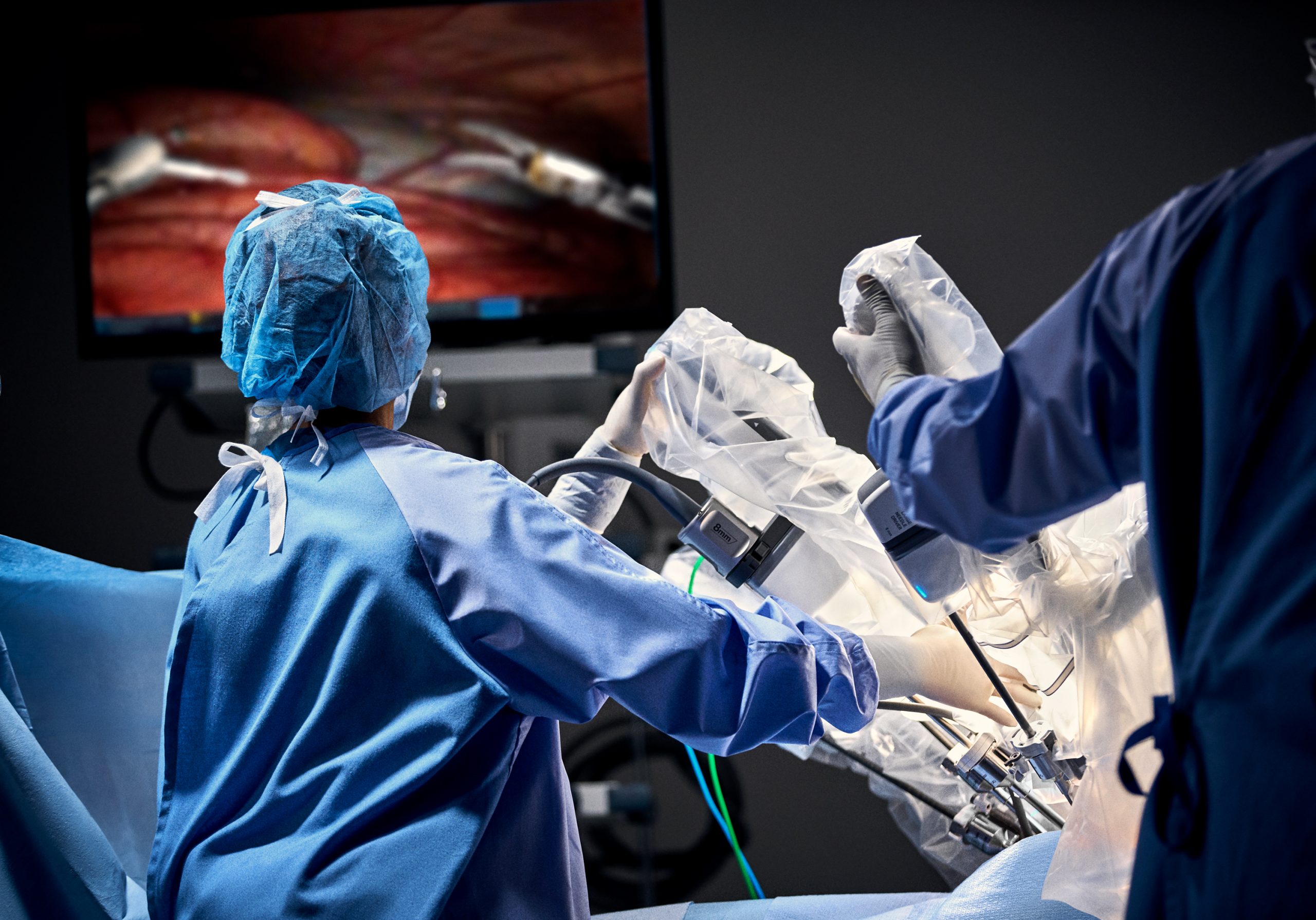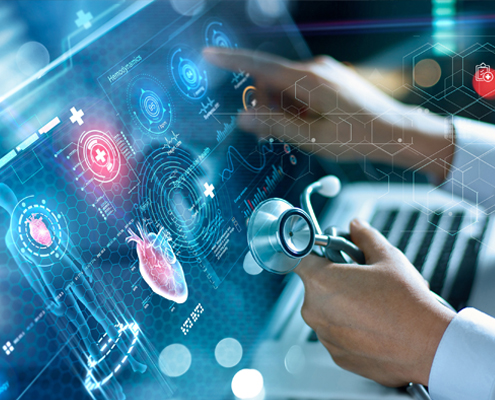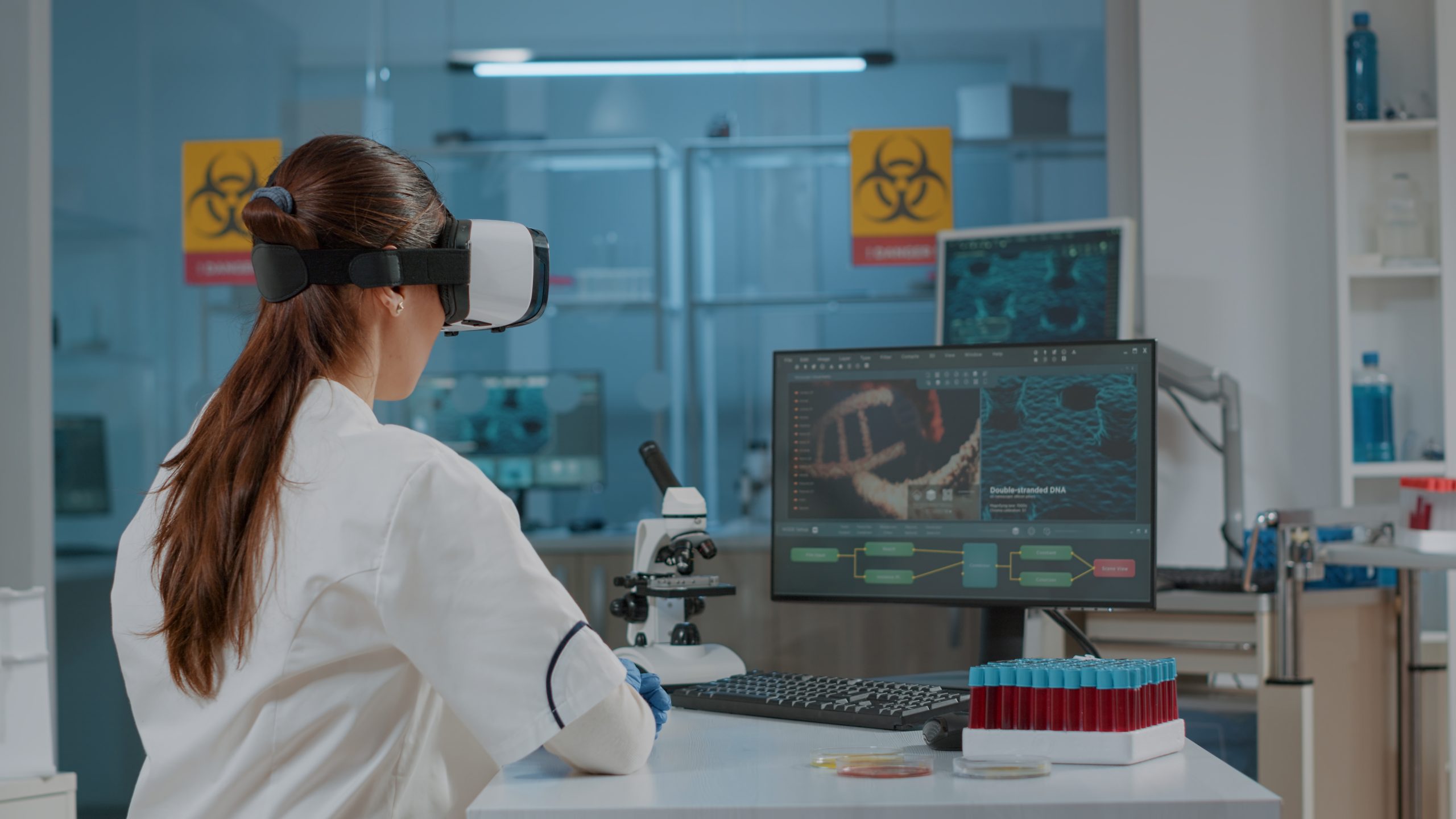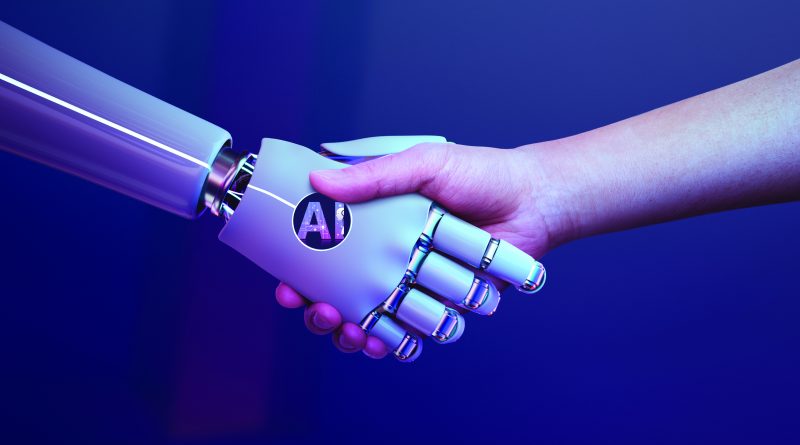Artificial Intelligence in Health Care
Being established as revolutionary technique of medical diagnosis Artificial Intelligence has an ultimate goal to create expert systems which exhibit intelligent behaviour, learn, demonstrate, explain, and advice its users…..
By Dr NK Prasanna/ Dr SK Varshney


In today’s digital world, smart phones have become an integral part of our daily routine. From waking up in the morning till late evening, we continue to check notifications. Our mobile devices have become a gateway to the world. Health Care in the world, including India, has also seen many developments together with the advancement of information technology, artificial intelligence, and telecommunications.
The World Health Organization (WHO) defines Telemedicine as “The delivery of healthcare services, where distance is a critical factor, by all healthcare professionals using information and communication technologies for the exchange of valid information for diagnosis, treatment, and prevention of disease and injuries, research and evaluation and the continuing education of healthcare providers, all in the interests of advancing the health of individuals and their communities.1-2 Telemedicine has taken the most crucial role in Public Health in many countries3.
The next level of advanced development in combination of information technology and telecommunication for enormous data transfer came out as Artificial Inelegance (AI). The value of AI is immeasurable. Its addition to any field instantly doubles its potential and capabilities.
 What is AI?
What is AI?
Artificial Intelligence, often called AI, is a revolutionary field that has transformed how the machines process information, and performs tasks. At its core, AI encompasses the intelligence exhibited by these machines which not only aids in executing numerous functions but also boasts features like sentiment analysis and natural language processing (NLP). Utilizing sentiment analysis and NLP, machines can evaluate emotions and thoughts conveyed through text or speech, allowing them to understand better human communication. Further, one of the most remarkable aspects of AI lies in its ability to autonomously analyze vast amounts of historical data and preloaded given information.
This acquired knowledge enables machines to comprehend patterns, make sense of complex datasets, and utilize this information effectively for various business-oriented tasks. It is important to note that while AI represents a larger umbrella term encompassing different technological advancements such as machine learning and deep learning; each subset carries distinct responsibilities when equipping machines with invaluable cognitive abilities.
The health industry and wellness industry has already been utilizing information technology in the storage of diagnostic results, case sheets, and prognosis of different diseases and disorders and telemedicine utilizing critical invasive procedures across the world, now advancement came in the shape of Artificial inelegance in health care.
Types of AI in health care:
AI is an umbrella term covering a variety of distinct, but interrelated processes. Some of the most common forms of AI used within health care include Machine learning (ML). In this process, algorithms are trained using data sets like health records to create models capable of performing tasks such as categorizing information or predicting clinical outcomes. ML has revolutionized healthcare by enabling precision medicine and diagnosis through pattern recognition and predictive analytics.
Another essential form is deep learning, which takes machine learning one step further. It involves greater volumes of data, longer training times, and layers of ML algorithms to produce neural networks capable of more complex tasks. Deep learning has shown promise in medical imaging analysis for early detection and accurate classification of diseases. Neural language processing (NLP) utilizes machine learning techniques to interpret human language, both verbal and written. In the context of healthcare, NLP is widely used to extract meaningful information from patient documentation, notes, reports, and published research papers. This helps clinicians make more informed decisions based on vast amounts of unstructured textual information and case sheet data stored worldwide.
 Robotic process automation (RPA) merges AI with computer programs to automate administrative and clinical workflows within healthcare organizations. RPA simplifies tasks like appointment scheduling, billing procedures, and record keeping, reducing errors while enhancing efficiency in daily operations.
Robotic process automation (RPA) merges AI with computer programs to automate administrative and clinical workflows within healthcare organizations. RPA simplifies tasks like appointment scheduling, billing procedures, and record keeping, reducing errors while enhancing efficiency in daily operations.
Alexa, makes our lives easier, and enhances our overall productivity.
In today’s fast-paced world, we have become accustomed to relying on virtual assistants like Siri, Alexa, or Google Assistant for various tasks. These AI-powered apps have become an integral part of our daily routines for many, serving as personal secretaries that cater to our needs and provide us with instant information.
One of the remarkable aspects of these AI assistants is their ability to utilize artificial intelligence to personalize our experiences. For instance, when we turn on the GPS for navigation purposes, it is through AI technology that we are alerted about potential traffic jams ahead. This personalized information allows us to make informed decisions and avoid unnecessary delays.
Moreover, AI has revolutionized the way we interact with technology by tailoring it specifically for us. It understands our preferences and adapts accordingly. Just like a specially cooked curry that satisfies half of our hunger simply because it was made with love and consideration for our tastes, personalized AI ensures that all aspects of our work are tailored to suit us.
The value of personalization cannot be underestimated in today’s world where time is precious and efficiency is key. Artificial intelligence saves us time by automating tasks and streamlining processes. It anticipates our needs and provides proactive suggestions or recommendations based on past behaviors or patterns. In essence, artificial intelligence has become an indispensable tool in modern society. It not only saves us time but also enhances our productivity by providing personalized assistance in various areas of life. As we continue to embrace this technology-driven era, it is clear that AI will play an increasingly significant role in shaping the way we live and work.
 Medical
Medical
In the field of medicine, the integration of artificial intelligence (AI) has proven to be incredibly beneficial. From digitizing health records to conducting research, AI is revolutionizing the way the healthcare professionals operate. One significant advantage of AI in medicine is its ability to analyze vast amounts of information, enabling quicker and more accurate diagnoses. A prime example of this can be seen in the early detection of heart failure. Previously, identifying the warning signs leading to sudden death was a challenging task.
However, thanks to advancements in AI technology, a research team from IBM has successfully analyzed patient electronic health records using artificial intelligence algorithms. Their findings have concluded that with the aid of AI, it is now possible to detect the likelihood of heart failure up to two years in advance. This groundbreaking discovery has tremendous implications for patient care and overall healthcare outcomes. By identifying potential heart failure cases well in advance, medical professionals can intervene earlier and implement preventative measures that could potentially save lives.
The integration of artificial intelligence into medical practices not only enhances efficiency but also improves patient outcomes by providing valuable insights for timely and accurate diagnoses. As we continue to explore the possibilities offered by AI in medicine, it is evident that this technology is paving the way for a future where early detection and proactive intervention become standard practice in medical care.
The use of AI in pharmaceutical research holds immense promise for developing new drugs and treatments more efficiently than ever before. Cataract and orthopedic surgeries are now being performed by robots in major hospitals, ensuring precision and minimizing human error. These AI robots act as skilled assistants to doctors, enhancing their capabilities and improving patient outcomes.
The recent discovery of a powerful new antibiotic drug by MIT researchers has opened up new avenues in the fight against bacterial infections. Named ‘halicin’, this groundbreaking medicine has shown remarkable effectiveness in killing various bacteria, including a strain of tuberculosis that has previously been difficult to treat. Machine learning algorithms enabled scientists to quickly identify patterns and correlations within the vast dataset, leading them to uncover halicin’s potent antibacterial properties.
This breakthrough demonstrates how AI can revolutionize drug discovery by accelerating the analysis process and identifying potential treatments that may have otherwise gone unnoticed. In the wake of the COVID-19 pandemic, the use of AI capable robots has skyrocketed by 25 percent within a single year. These intelligent machines have played a crucial role in providing essential services such as delivering medicines and food to patients in isolation. Their ability to navigate through complex environments with ease ensures that patients receive timely care while minimizing human contact.

Revolutionizing Healthcare:
How AI is Paving the Way: For a Transformative Future in India
Indian healthcare is one of the country’s largest sectors, representing a booming industry that continues to experience robust growth. This upward trend can be primarily attributed to substantial investments made by both the government and corporate entities towards improving coverage and enhancing the quality of medical products and services. Despite these commendable efforts, India still lags behind on the Healthcare Access and Quality (HAQ) index, highlighting existing inadequacies within the sector. Moreover, with the emergence of COVID-19, an already challenging landscape has been further exacerbated. However, amidst these adversities lies a potential solution – technology integration in healthcare, specifically Artificial Intelligence (AI).
The synergy between AI and healthcare has become increasingly vital as it enables seamless access to care anytime and anywhere. By unleashing AI’s transformative power in health care organizations, Medical Research, Diagnostics and patient health products together, India can aspire to revolutionize its future trajectory in healthcare delivery by bridging gaps in accessibility and achieving optimal health outcomes for all its citizens.

Challenges in Health care with AI
Challenges of AI in healthcare underpin the need to establish rigorous processes for not only ethical and responsible access to data but also providing original data without doctoring for their convenience. Particularly noteworthy is the exceptionally sensitive nature of healthcare data, which demands utmost caution when handling it. This intricate landscape presents additional hurdles as this data is often inconsistent, soiled, and lacking optimization for machine learning endeavors such as development, evaluation, implementation, and adoption research into implementation. What you sow, what you reap. With paramount importance placed on ensuring patient privacy and safeguarding against potential misuse or breaches of this valuable information trove using artificial intelligence-driven algorithms calls for a meticulous investigation.
Searching deep into issues emerging during algorithm deployment in real-world scenarios becomes imperative while concurrently integrating these “trusted” AI algorithms seamlessly within appropriate workflows. Ethical issues include reliability and safety of data, transparency, and accountability of data, data bias, and effeteness on subjects and patient outcomes. Recognizing these challenges head-on through careful consideration and exploration of potential pitfalls can only pave a path towards establishing reliable mechanisms that uphold ethics while harnessing the transformative power of AI in healthcare without compromising integrity or jeopardizing patient trust.
(The authors are Senior Scientist at CSIR-National Institute of Science Communication and Policy Research/Head, International Cooperation, Department of Science and Technology, New Delhi)

